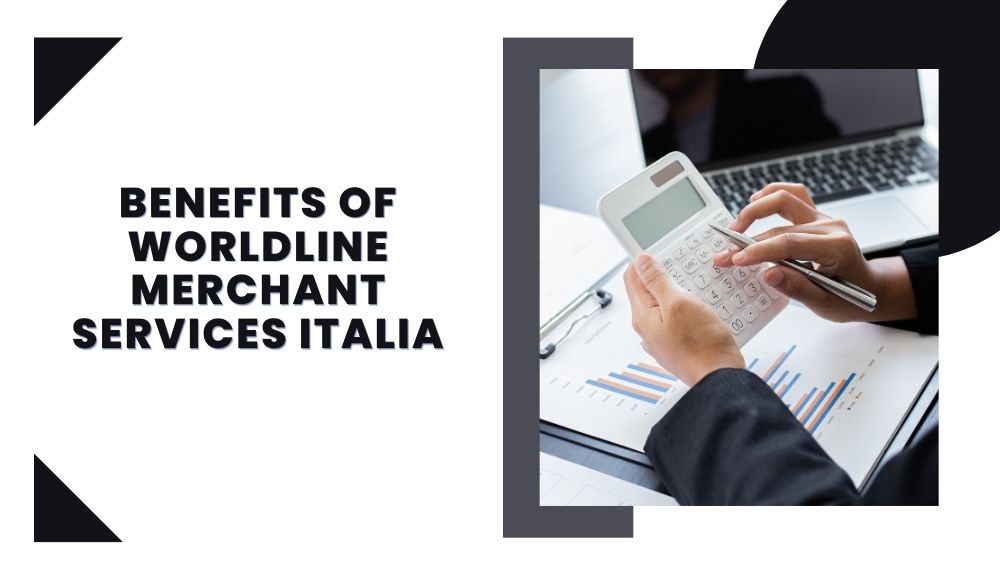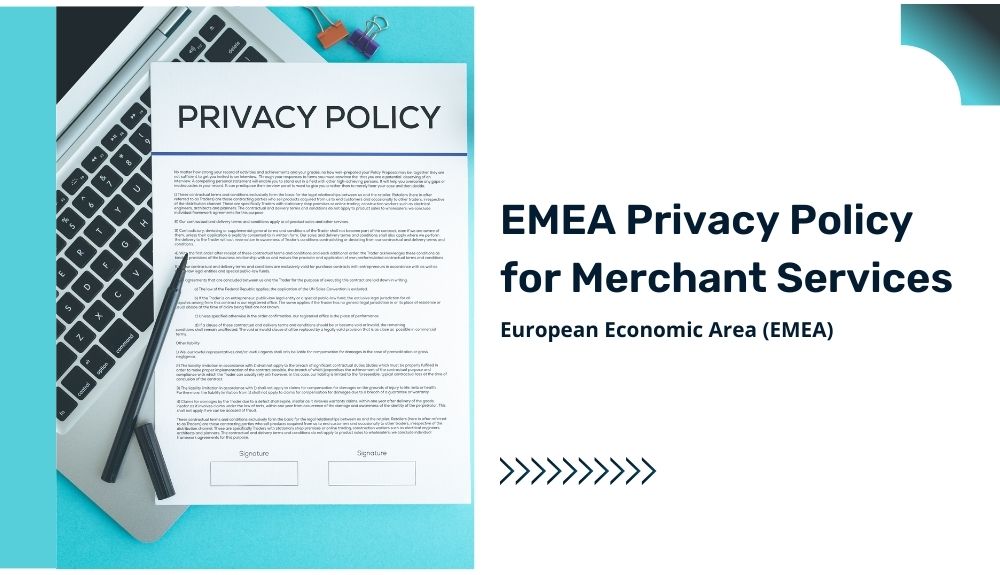Streamline Your Payments: 7 Merchant Account Options That Contractors Swear By
Are you a contractor looking to streamline your payments? You’re in luck! In this blog, we’ll explore 7 merchant account options that contractors swear by. Picture the following scenario: you’ve just completed a job, and now it’s time to get paid. But the last thing you want is to deal with the hassle and delays of traditional payment methods. That’s where a reliable and efficient merchant account comes into play.
In this informative article, we will dive into the world of merchant accounts and discuss the options that are most popular among contractors. From easy setup and seamless integration to competitive rates and secure transactions, these merchant account solutions have been specifically designed to cater to the needs of contractors like you.
1. Understanding Merchant Accounts for Contractors
Contractors often face unique challenges when it comes to managing their payments. Whether they’re in the construction industry, home renovation, or any other contracting field, finding the right payment solution is crucial for streamlining their business operations. This is where merchant accounts come into play.
A merchant account is a type of bank account specifically designed for businesses to accept credit card payments from customers. It acts as a virtual gateway that facilitates the transfer of funds between the customer’s credit card and the contractor’s bank account. By setting up a merchant account, contractors can accept payments securely and efficiently, providing convenience for their customers while ensuring smooth financial operations.
1.1 How Do Merchant Accounts Work?
To better understand how merchant accounts work, let’s break down the process into simple steps:
Step 1: Customer makes a payment When a customer hires a contractor and decides to pay with a credit card, they provide their card information.
Step 2: Transaction authorization The contractor’s payment processor, connected to their merchant account, communicates with the customer’s issuing bank to verify the transaction’s validity and the availability of funds in the customer’s account.
Step 3: Funds transfer If the transaction is approved, the funds are transferred from the customer’s account to the contractor’s merchant account.
Step 4: Settlement and payout The funds held in the merchant account are then transferred to the contractor’s business bank account within a specified settlement period, which can vary depending on the merchant account provider.
1.2 Why Do Contractors Need Merchant Accounts?
Contractors, like any other businesses, require merchant accounts for several essential reasons:
Secure and convenient payment acceptance: By accepting credit card payments through a merchant account, contractors provide their customers with a secure and convenient payment method, reducing the need for cash or check transactions.
Increased customer trust: By offering trusted and well-known payment options, contractors can build credibility and trust with their customers. Customers often feel more comfortable doing business with contractors who offer the flexibility and reliability of credit card payments.
Streamlined cash flow management: Merchant accounts provide contractors with a streamlined process for managing cash flow. With clear records of transactions and easy access to funds, contractors can better monitor their revenue and expenses.
Easier tracking and reporting: Merchant accounts typically offer robust reporting tools that allow contractors to track transactions, generate financial reports, and analyze their business’s overall performance.
Reduced risk of fraud: Merchant accounts often include built-in security measures, such as fraud prevention.
2. Benefits of Streamlining Payments for Contractors
In the fast-paced world of contracting, managing payments efficiently is essential for ensuring smooth operations and sustainable business growth. Streamlining payments offers a range of benefits for contractors, enhancing their financial management and overall customer satisfaction. Let’s explore some of the key advantages contractors swear by when it comes to optimizing their payment processes:
1. Improved Cash Flow:
Efficient payment systems can significantly impact a contractor’s cash flow. By streamlining payments, contractors can receive faster and more reliable payments from clients, minimizing late payments or payment disputes. This steady cash flow allows contractors to better manage their expenses, eliminate cash flow gaps, and allocate resources to essential aspects of their projects.
2. Enhanced Financial Organization:
Managing multiple payment methods and platforms can be time-consuming and prone to errors. Streamlining payments consolidates all financial transactions into a single system, making it easier for contractors to track and manage their income and expenses. With a centralized payment platform, contractors can effortlessly generate financial reports, track invoices, and simplify tax preparation.
3. Increased Efficiency:
Manual payment processing can be labor-intensive and prone to mistakes. Streamlining payments automates the process, reducing administrative tasks while increasing efficiency. Contractors can reduce paperwork, automate billing, and process payments in a fraction of the time. This streamlining enables them to focus more on their core business activities and spend less time on back-end financial tasks.
4. Better Client Relationships:
Contractors understand the importance of building strong client relationships based on trust and reliability. Streamlining payments allows contractors to provide clients with a convenient and secure payment experience. By offering various payment options, such as credit cards, online payments, and automated recurring billing, contractors can cater to the preferences of different clients. This flexibility enhances customer satisfaction and fosters long-lasting partnerships.
5. Enhanced Security:
Handling sensitive payment information requires robust security measures. Streamlining payments enables contractors to integrate with secure payment gateways and implement strong encryption protocols. By protecting client data and ensuring the security of financial transactions, contractors can build a reputation for trustworthiness and professionalism, further increasing their credibility in the industry.
6. Transparency and Accountability:
When payments are streamlined, both contractors and clients benefit from increased transparency and accountability. Contractors can provide detailed invoices with clear breakdowns of services rendered, making it easier for clients to understand and approve payments. This transparency builds trust and reduces the likelihood of payment disputes, creating a positive working relationship between contractors and their clients.
3. Traditional Merchant Account Providers for Contractors

Contractors often prefer traditional merchant account providers for their payment processing needs. These providers offer reliable and secure solutions that cater specifically to the needs of contractors. Here are three popular options that contractors swear by:
1. Bank of America Merchant Services
Bank of America Merchant Services is a reputable provider that offers tailor-made solutions for contractors. They provide a wide range of services, including point-of-sale systems, online payment gateways, and mobile payment options. With Bank of America, contractors can streamline their payment processes and accept various payment methods, including credit cards and digital wallets. Their reliable security measures ensure that contractors and their clients’ sensitive data is protected.
2. Chase Merchant Services
Chase Merchant Services is another trusted name in the traditional merchant account landscape. They offer flexible solutions for contractors, allowing them to accept payments in-store, online, or on-the-go. Contractors can choose from a range of payment processing options, including chip card readers, virtual terminals, and mobile card readers. Chase provides advanced security features, including encryption and tokenization, ensuring that contractors can handle transactions securely.
3. Fiserv
Fiserv is a well-established merchant account provider that caters to the specific needs of contractors. They offer a range of payment acceptance solutions, including countertop terminals, e-commerce gateways, and mobile payment solutions. Fiserv focuses on delivering streamlined payment experiences for contractors, ensuring convenient and secure transactions.
💡 key Takeaway: Traditional merchant account providers like Bank of America Merchant Services, Chase Merchant Services, and Fiserv offer contractors reliable and secure payment processing solutions, making it easier for them to manage and accept various payment methods.
4. Online Payment Gateways for Contractors
As the world becomes increasingly digital, online payment gateways have become a convenient and secure option for contractors to efficiently manage their payments. These platforms act as a bridge between customers and contractors, enabling seamless transactions and ensuring timely payments. Here are some popular online payment gateways that contractors swear by:
1. PayPal:
One of the most widely recognized payment gateways, PayPal offers a user-friendly interface and supports transactions in multiple currencies.
Contractors can create professional invoices, set up recurring payments, and securely receive payments from clients.
PayPal also provides added protection with its buyer and seller protection policies, giving contractors peace of mind.
2. Stripe:
Known for its developer-friendly features, Stripe offers a robust and customizable payment gateway solution.
Contractors can integrate Stripe into their website or mobile app to streamline the payment process, accepting credit or debit card payments from clients worldwide.
With transparent pricing and powerful tools like built-in fraud prevention, Stripe ensures secure transactions and facilitates easy management of payment data.
3. Square:
Popular among contractors in the service industry, Square provides a range of payment solutions including a mobile point-of-sale system.
Contractors can use Square’s card reader to accept payments on-the-go, making it convenient for contractors who offer services at various locations.
Square also offers advanced features like employee management tools and inventory tracking, making it an all-in-one solution for small business owners.
4. Authorize.Net:
Trusted by many contractors, Authorize.Net offers a robust payment gateway solution tailored for businesses of all sizes.
With features like recurring billing, fraud protection, and customer data management, contractors can easily manage their payment processes.
Contractors can also take advantage of Authorize.Net’s virtual terminal, which allows them to process payments from anywhere with an internet connection.
Using an online payment gateway provides contractors with a reliable and efficient way to handle payments from clients. Whether it’s through PayPal, Stripe, Square, or Authorize.Net, contractors can choose the platform that best suits their needs and preferences.
💡 key Takeaway: Contractors have several reliable online payment gateway options to streamline their payment processes, including PayPal, Stripe, Square, and Authorize.Net. These platforms offer secure transactions, convenient features, and customizable solutions to cater to the needs of contractors.
5. Mobile Payment Options for Contractors
In today’s digital age, mobile payments have become increasingly prevalent in various industries, including the contracting business. Contractors are now adopting mobile payment options to streamline their payment processes and provide convenience to their clients. Here are some popular mobile payment solutions that contractors swear by:
1. PayPal Here
PayPal Here is a widely recognized mobile payment solution that allows contractors to accept payments on-the-go. Contractors can use the PayPal Here app on their mobile devices to easily process payments from clients, whether it’s through credit cards, debit cards, or even PayPal accounts.
With PayPal Here, contractors can generate invoices, send receipts directly to clients’ email addresses, and track their payment transactions conveniently. It provides a seamless payment experience for contractors and their clients.
2. Square
Square is another popular mobile payment option that contractors find valuable. Through the Square app and a card reader attachment, contractors can accept payments from clients using credit cards, debit cards, or contactless payment methods like Apple Pay and Google Pay.
Square also offers additional features, such as inventory management and invoicing, which can be beneficial for contractors who need to keep track of their products and services. Its user-friendly interface and transparent pricing make it a go-to choice for many contractors.
3. QuickBooks GoPayment
QuickBooks GoPayment is a mobile payment solution provided by Intuit, the same company behind the widely used QuickBooks accounting software. Contractors who already use QuickBooks for their business management find GoPayment to be an excellent addition to their toolkit.
With GoPayment, contractors can accept payments on-site, process credit cards, and even record and synchronize these transactions in real-time with their QuickBooks accounts. This seamless integration helps contractors streamline their accounting processes and stay organized.
4. Stripe
Stripe is a versatile payment platform that offers businesses, including contractors, the ability to accept mobile payments easily. Contractors can integrate Stripe into their websites or use the Stripe mobile app to accept payments from clients effortlessly.
Stripe supports various payment methods, including credit cards, bank transfers, and digital wallets, allowing contractors to cater to different client preferences. Its robust security features and developer-friendly tools make it a trusted option among contractors.
💡 key Takeaway: Embracing mobile payment options can bring convenience and efficiency to contracting businesses.
6. Specialized Payment Solutions for Contractors

Contractors often face unique challenges when it comes to managing payments for their services. Fortunately, there are specialized payment solutions available that cater specifically to the needs of contractors. These solutions help streamline the payment process, improve cash flow, and provide a more convenient experience for both contractors and their clients. Here are seven merchant account options that contractors swear by:
1. Contractor-Focused Payment Processors
Contractor-focused payment processors are designed specifically for the construction industry. These processors understand the complexities and specific requirements of contracting businesses. They offer features like project-specific payment tracking, integration with construction management software, and customizable invoicing options tailored to the needs of contractors.
2. Mobile Payment Apps
In an industry that often requires mobility, mobile payment apps are incredibly useful for contractors. These apps allow contractors to accept payments on the go using their smartphones or tablets. With features like instant invoicing and the ability to process credit card transactions anywhere, contractors can easily collect payments from clients, even while working on-site.
3. Online Payment Gateways
Online payment gateways provide a convenient way for contractors to accept payments electronically. These gateways securely process credit card transactions through an online platform. Contractors can create customizable payment pages and send payment links to clients, allowing for quick and efficient payment collection. Integration with accounting software also streamlines the bookkeeping process.
4. Point-of-Sale (POS) Systems
For contractors who have physical storefronts or frequently interact with clients face-to-face, POS systems are an excellent choice. These systems allow contractors to accept payments in-person using various payment methods, including credit cards, debit cards, and mobile wallets. They also offer features like inventory management, sales analytics, and customer relationship management.
5. Recurring Billing Systems
Many contractors provide ongoing services and require recurring billing capabilities. Recurring billing systems automate the payment process for these contractors by automatically charging clients on a regular basis. These systems ensure consistent cash flow and reduce the administrative burden of manually invoicing clients for recurring services.
6. Virtual Terminals
Virtual terminals enable contractors to accept payments over the phone or by mail. Contractors can simply enter client payment information into a secure online portal, eliminating the need for physical credit card machines. Virtual terminals are particularly useful for contractors who provide remote services or for clients who prefer to pay without sharing credit card details online.
Conclusion
In conclusion, finding the right merchant account option for contractors can be a game-changer for streamlining payments. By understanding the unique needs and challenges that contractors face, these seven top merchant account options have proven to be trusted and reliable choices. From low transaction fees to seamless integration with existing systems, contractors swear by these options for their payment processing needs. Whether you’re a general contractor, electrician, or plumber, choosing the right merchant account can save you time and money. Don’t settle for outdated payment methods that eat into your profits.











